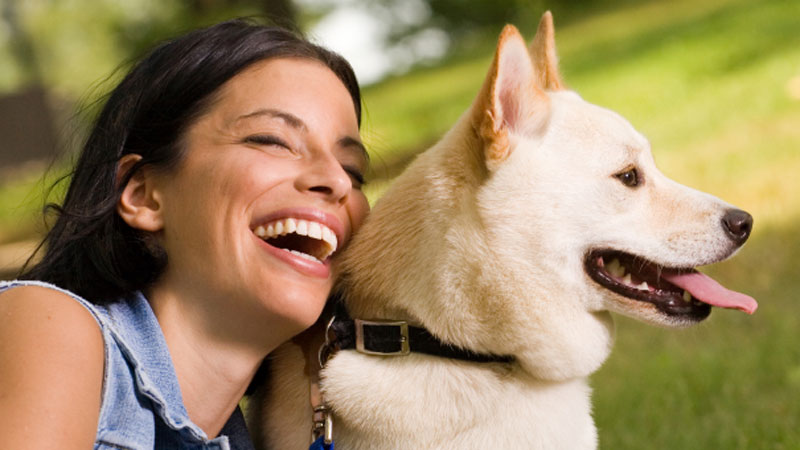Diarrhoea
Diarrhoea in dogs is very common and is usually caused by dietary indiscretion (eating something that they are not used to). Dogs often ingest food they shouldn't - from stealing the Sunday roast to snaffling a rotten sandwich on a walk - it can all end up with a dodgy tum! Most cases are mild and will resolve on their own within 24 hours. Diarrhoea that continues for longer will warrant a phone call to your vets for advice, especially if your dog is young, elderly, is on medication (such as non-steroidal anti inflammatories) or is otherwise unwell.
Dogs can develop food allergies. This means the dog is allergic to something in their normal food. This results in a more chronic diarrhoea and can often be accompanied by skin problems. A sudden change in diet can cause diarrhoea. If you want to introduce a new food, it is advisable that it is done gradually over a 2-week period to avoid a tummy upset.
Parvovirus infection has a high mortality rate, it causes a severe diarrhoea with vomiting. Fortunately, most dogs are fully vaccinated so we don't see it very often, usually only in unvaccinated puppies. Most people regularly worm their dog, but high worm burdens can cause diarrhoea as they damage the lining of the guts. This is resolved with routine worm treatment.
Giardia is a very common parasite that attacks the gut lining. It is a frequent cause of watery diarrhoea in young dogs. There are several effective treatments but re infection is an issue hence the importance of picking up your dog’s poo.
Bacterial gut infections such as salmonella and campylobacter are less common. They will often cause severe bloody diarrhoea. They can both affect humans. If a case of salmonella is detected it is notifiable due to the human health risk.
Haemorrhagic gastroenteritis (HGE) is a very nasty condition that causes severe bloody vomiting and diarrhoea. Dogs become severely dehydrated very rapidly and most will need to be hospitalised for intravenous fluid therapy. Colitis is inflammation of the large intestine and results in mild diarrhoea but accompanied by mucus and blood. Inflammatory bowel disease (IBD) causes chronic intermittent diarrhoea of varying severity.
Pancreatitis can cause diarrhoea, but it is more likely accompanied by vomiting, anorexia, and a painful abdomen. Liver disease can also cause diarrhoea but again is accompanied by other symptoms such as vomiting, weight loss, poor appetite, and jaundice.
Exocrine pancreatic insufficiency (EPI) is most commonly seen in GSDs. This causes a profuse diarrhoea and significant weight loss as the dog can't digest its food properly.
In cases of mild diarrhoea of less than 24 hours duration and with no other symptoms, then ensure your dog is drinking regularly and has access to clean water. You can try fasting for 12-24 hours and then start feeding a bland white meat diet (e.g. chicken and rice) in small amounts and at regular intervals. Many bland commercial foods are available (Hills L/D and Royal Canin Sensitivity are good examples) to make life easier. Hopefully poos should return to normal within 48 hours so you can slowly re introduce their normal food over a couple of days.
Probiotics can help in some cases by adding good bacteria to your dog’s gut. Most cases of diarrhoea are viral, or food induced so don't require antibiotics. These are reserved for severe cases or where bacteria are suspected, they can make some cases worse.
Always contact your vet for advice if symptoms persist for longer than 24 hours , if accompanied by vomiting or if your dog seems unwell.


